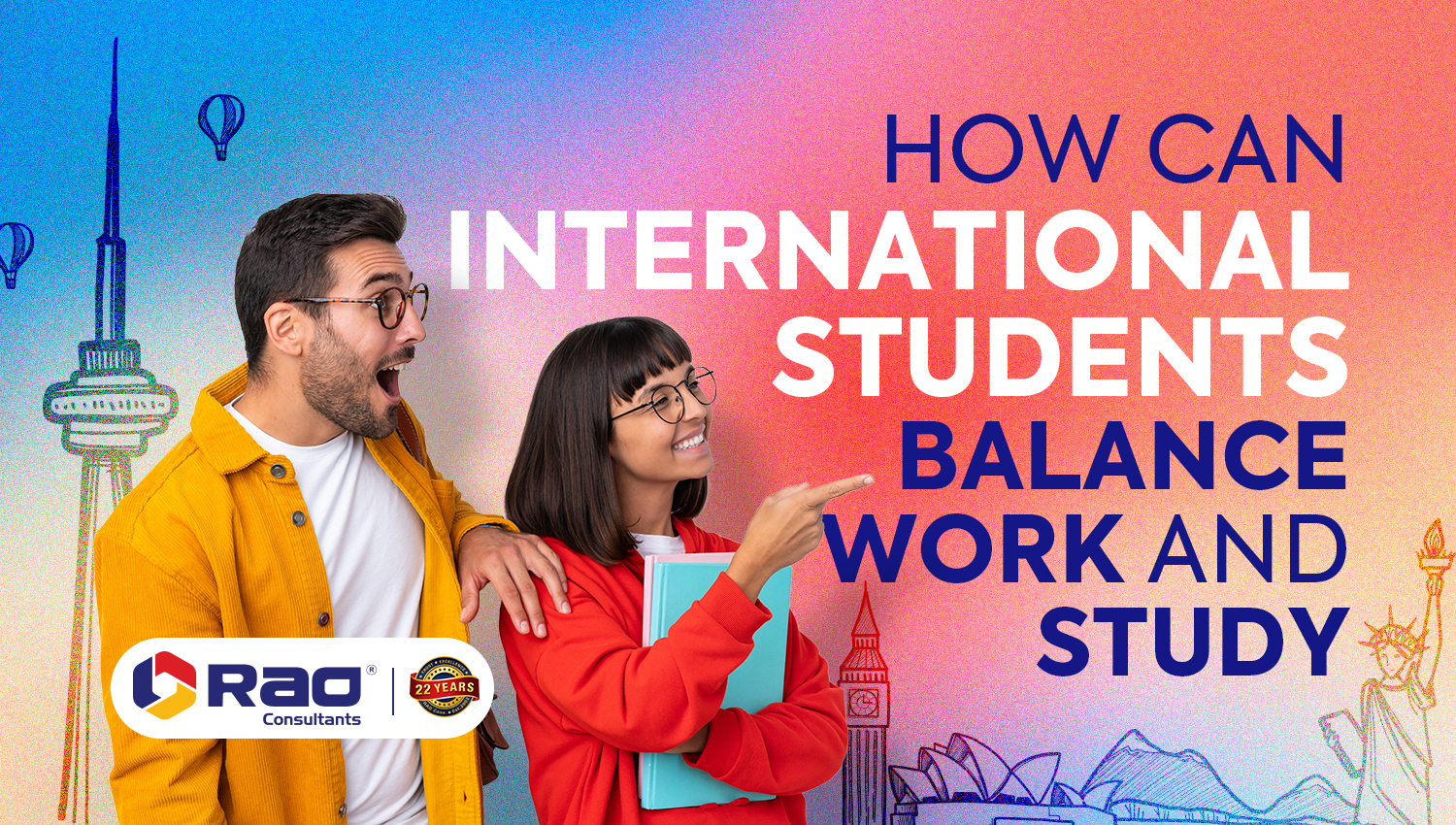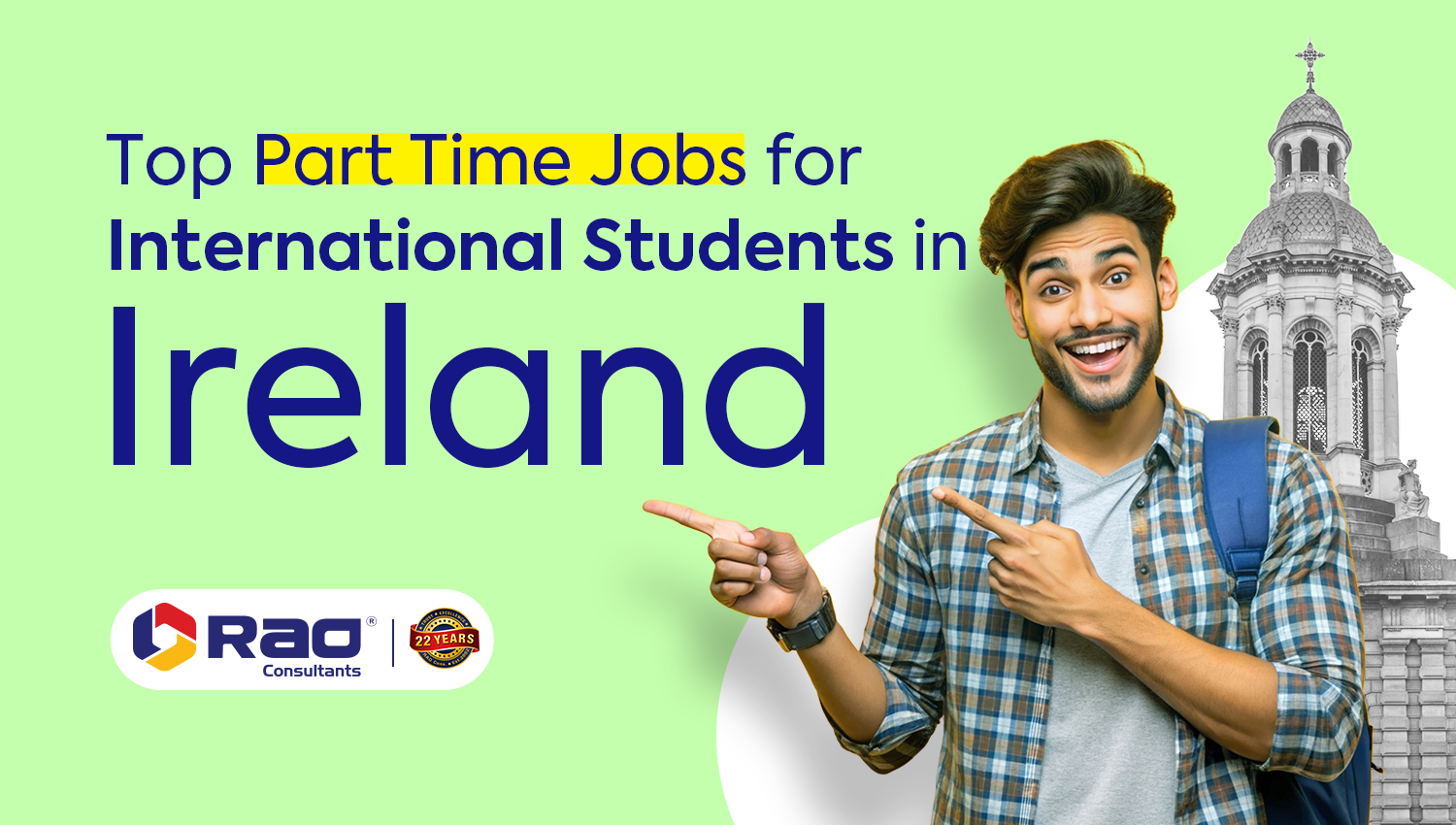
Rao Consultants
September 20, 2024
How Does Career Counselling Work?
One of the most important decisions students make during their academic journey is selecting the appropriate professional path. Making this choice can often feel daunting because there are so many possibilities accessible, ranging from Science to Commerce and Humanities, as well as professional disciplines like Engineering, Medicine, and Chartered Accountancy. What field to choose? What career path will be appropriate for me? What programs suit me? These and many other questions make this choice even harder.
As this is one of the most important decisions of a student’s life, most of them tend to lean towards taking experts’ advice. Some lean towards parental advice and some opt for career counselling, a practical approach to deciding a career.
If you are thinking, why do you need career counselling? Or How will it effect you? It should be known that more than just offering guidance on possible career paths, career counselling offers a methodical, scientific approach to helping clients understand themselves and make future decisions. It is particularly important for students in grades 9 through 10, as this is the time when they start to look at different career options.
The goal of career counselling is to help students make decisions that will lead to success and long-term satisfaction by helping them connect potential career paths with their interests, talents, and personal values. This article examines the systematic approach of career counselling and demonstrates how it may assist individuals in selecting jobs that align with their own interests and skills.
The Scientific Approach to Career Decision-Making
To assist students in making educated career selections, career counsellors adopt a scientific approach. Through a series of exams and consultations, this approach evaluates a student’s aptitudes, personality, and interests. Career counsellors can provide tailored advise by following a structured process, which is founded on factual information rather than speculation.
Aptitude Test and Psychometric Assessment
The career counselling process often begins with an aptitude test, followed by a psychometric exam. These tools are critical for identifying a student’s natural talents and preferences. This is how they function:
- Aptitude Test: This test evaluates a student’s abilities in a variety of categories, including logical reasoning, arithmetic aptitude, and verbal skills. It aids in determining where a pupil shines and where he or she may need to improve. For example, a student who scores especially well in logical thinking may be suited to employment in engineering or finance.
- Psychometric Assessment: This test assesses interpersonal skills and personality qualities such as extroversion and introversion. Counsellors can better assess a student’s potential fit into various job contexts and team dynamics by being aware of these features. An introverted student with strong analytical skills, for example, might do better in jobs involving research than in positions needing a lot of social interaction.
One-on-One Discussion with the Student
A one-on-one conversation with the student comes next in the Career Counselling Process after the assessments. Students can discuss their academic strengths, personal interests, and any existing job objectives during this one-on-one conversation. Why is this session so important? Here is way:
- Personal Insights: Standardised assessments could not adequately reflect students’ distinct perspectives on their hobbies and areas of interest. By talking about these interests, counsellors can better grasp the student’s motivations and potential career routes that fit with their own objectives.
- Academic Strengths: Students can talk about their academic performance and subjects they enjoy or excel in during this session. This data is crucial for connecting their academic aptitudes with appropriate employment paths.
- Preferences and Aspirations: Counsellors can better provide assistance that is in line with students’ long-term objectives when they have an understanding of their career aspirations, even if they are not yet completely developed.
This individualised conversation offers a comprehensive picture of the student’s profile by enhancing the information gathered from the aptitude and psychometric tests.
Comprehensive Report Generation
A comprehensive report, usually spanning 36 to 40 pages, is created by career counsellors based on the results of the aptitude test and the individual consultation. This extensive paper consists of:
- Assessment Results: Comprehensive results from the psychometric and aptitude tests, along with graphs and charts showing the student’s characteristics and areas of strength.
- Personal Insights: Summaries of the one-on-one conversation that focus on the main passions, skills in school, and desired careers.
- Career Recommendations: A list of suggested career routes based on the student’s profile, along with justifications for why these choices could be appropriate.
- Educational Pathways: Suggestions for relevant educational programs and institutions that align with the recommended career paths.
This report offers clear and practical insights into various career opportunities, making it an invaluable resource for students and their families.
Career Guidance Based on Interests and Strengths
Career counsellors offer individualised career suggestions after reviewing the comprehensive report. This action entails:
- Matching Interests with Careers: Counsellors assess each student’s talents and areas of interest before recommending career paths that fit their profile. Counsellors may advise a student interested in engineering to choose a career in architectural engineering or industrial design, for instance, if they have a strong creative and design ability.
- Exploring Alternative Paths: Students may uncover passions or aptitudes they have not previously recognised. For example, a student who has a strong interest in engineering but is passionate about photography should be encouraged to consider photography as a potential career path.
- Balancing Passion with Practicality: Counsellors help students combine their interests with pragmatic aspects such as labour market demand, earning potential, and educational requirements. This ensures that students make informed judgements about their future while still pursuing their hobbies.
Family Involvement in the Decision-Making Process
A follow-up session with the student’s family, including parents and siblings, is common in career counselling. This meeting is necessary for:
- Discussing Findings: Counsellors offer the whole report’s conclusions and career suggestions. This makes the rationale for the proposed career paths clear to families and demonstrates how they suit the student’s characteristics.
- Addressing Concerns: Families may be apprehensive or unsure about the proposals. This meeting provides an opportunity to discuss any further help the student may require and to resolve these concerns.
- Providing Support: Families have a significant role in a student’s occupational decision-making process. This meeting ensures that all parties are in agreement and that the student’s family is giving adequate assistance.
Exploring Educational and Career Opportunities
Professional counsellors assist students in exploring their educational and professional possibilities by offering career guidance. Among them are:
- Recommending Institutions: Counsellors recommend schools, universities, and other educational institutions with curriculum that align with the student’s intended career path. They might even recommend international universities to students from other nations.
- Guidance on Research and Preparation: Students receive guidance on how to research potential institutions, understand admission criteria, and prepare for entrance exams or application procedures. This stage is critical to ensuring that students are appropriately prepared for their chosen educational paths.
Building a Road Map for the Future
The ultimate goal of career coaching is to provide students with a clear and actionable path for their future. This includes:
- Creating a Plan: Counsellors work with students to create a comprehensive plan that outlines the steps necessary to achieve their professional goals. This may include skill development, internships, and substantial academic accomplishments.
- Setting Goals: Students who set short- and long-term goals are more motivated and focused. Counsellors assist students set reachable and fair objectives based on their preferred vocations.
- Providing Ongoing Support: Career coaching is an ongoing process rather than a one-time event. Counsellors provide continuing support and guidance to students as they progress in their academic and professional pursuits.
Conclusion
Professional counselling is an essential process that helps students navigate the challenging decision-making involved in choosing a professional path. By combining professional guidance, personal insights, and scientific assessments, career counselling offers a rigorous approach to identifying and pursuing the appropriate job. Parents and students may make confident and well-informed decisions about their future occupations with the help of career counselling, which can offer the knowledge they need.
If you’re interested in exploring your true passions and finding the right career path, don’t hesitate to seek professional career counselling. Then book a session at Rao Consultants. Experts at Rao will help you build Road map for your Career and will also assist you in navigating all the hurdles so that you career.
Share onYou May Also Like

How Can International Students Balance Part-Time Work and Study?
Studying abroad is a dream come true for many students. when you’re juggling part-time work and study then it’s enriching, exciting, and at times, a little overwhelming. Sounds like walking a tightrope, doesn’t it? For many international students, working part-time isn’t just a choice; it’s a necessity. But how do you keep your grades up […]
Read More
Top Part-Time Jobs for International Students in Ireland
Are you planning to study in Ireland and wondering how to manage your expenses? You’re not alone. Thousands of international students ask the same question each year. The good news? Ireland offers plenty of part time job opportunities that can help ease your financial load—and even boost your resume. Think of it like riding a […]
Read More
Most Budget-Friendly Countries for Indian Students to Study Abroad
Study abroad is a dream shared by many Indian students—but the rising cost of international education can often make that dream feel out of reach. Between hefty tuition fees, expensive living costs, and currency exchange challenges, many students and their families hesitate to take the plunge. But what if you could study in a country […]
Read More